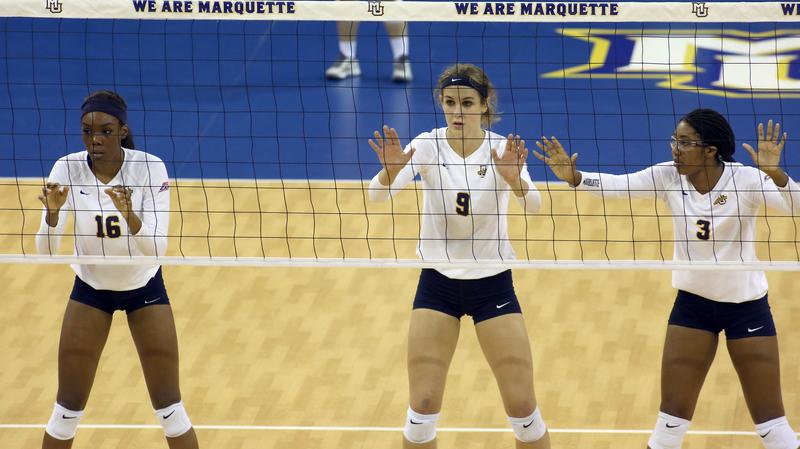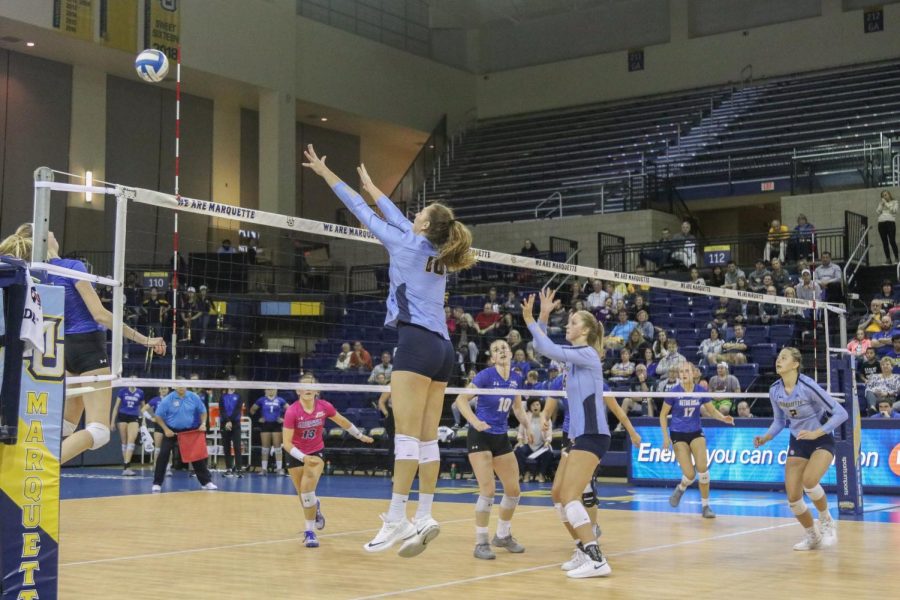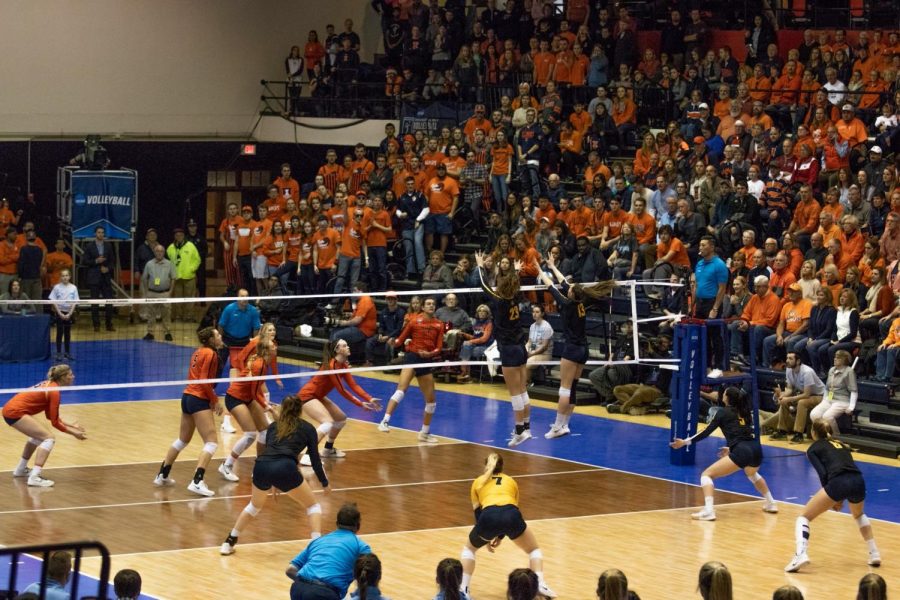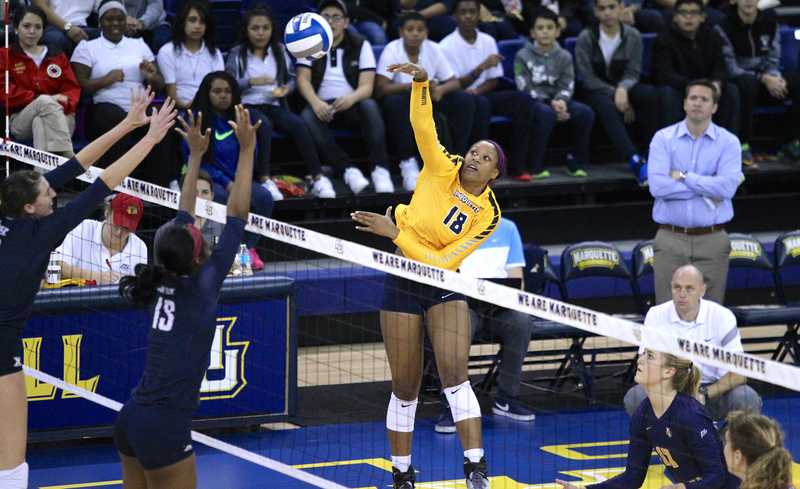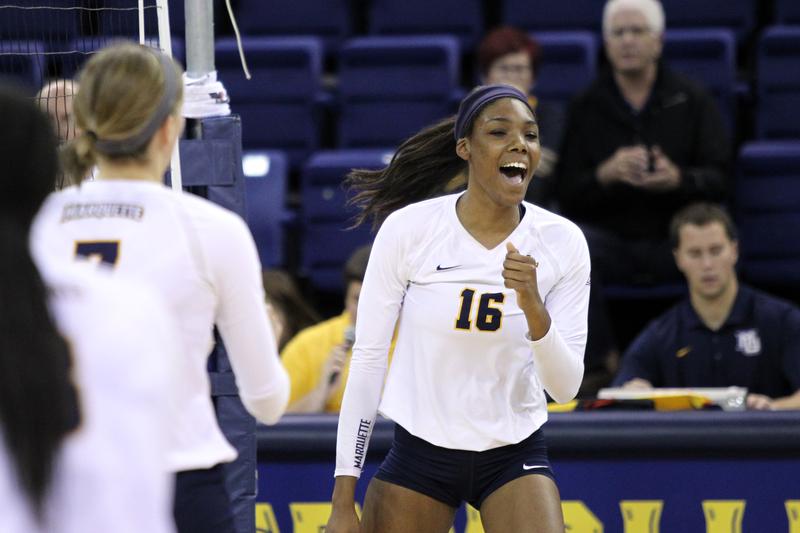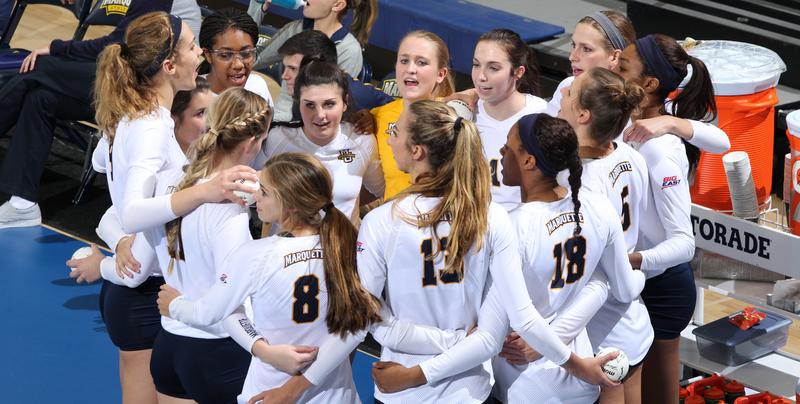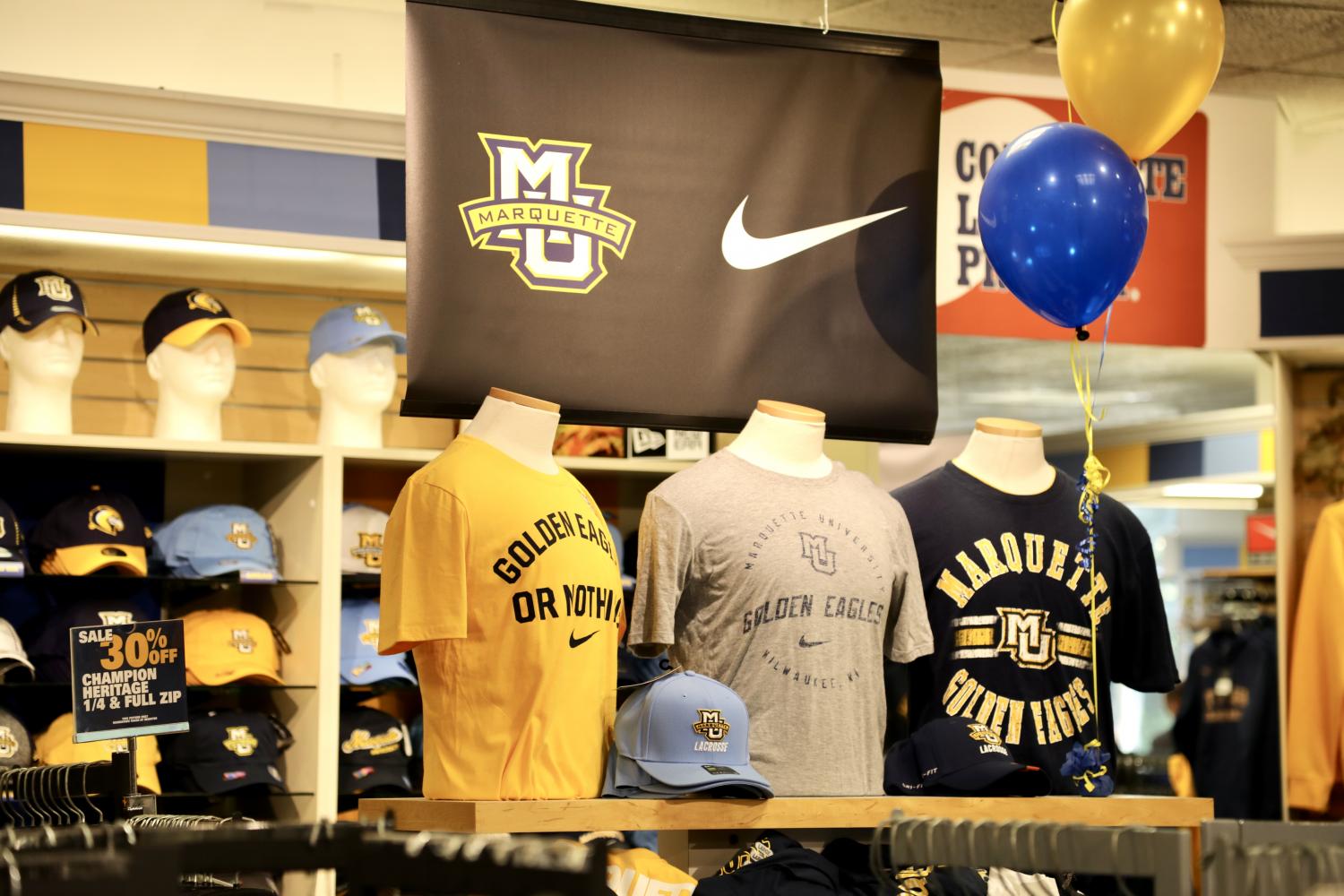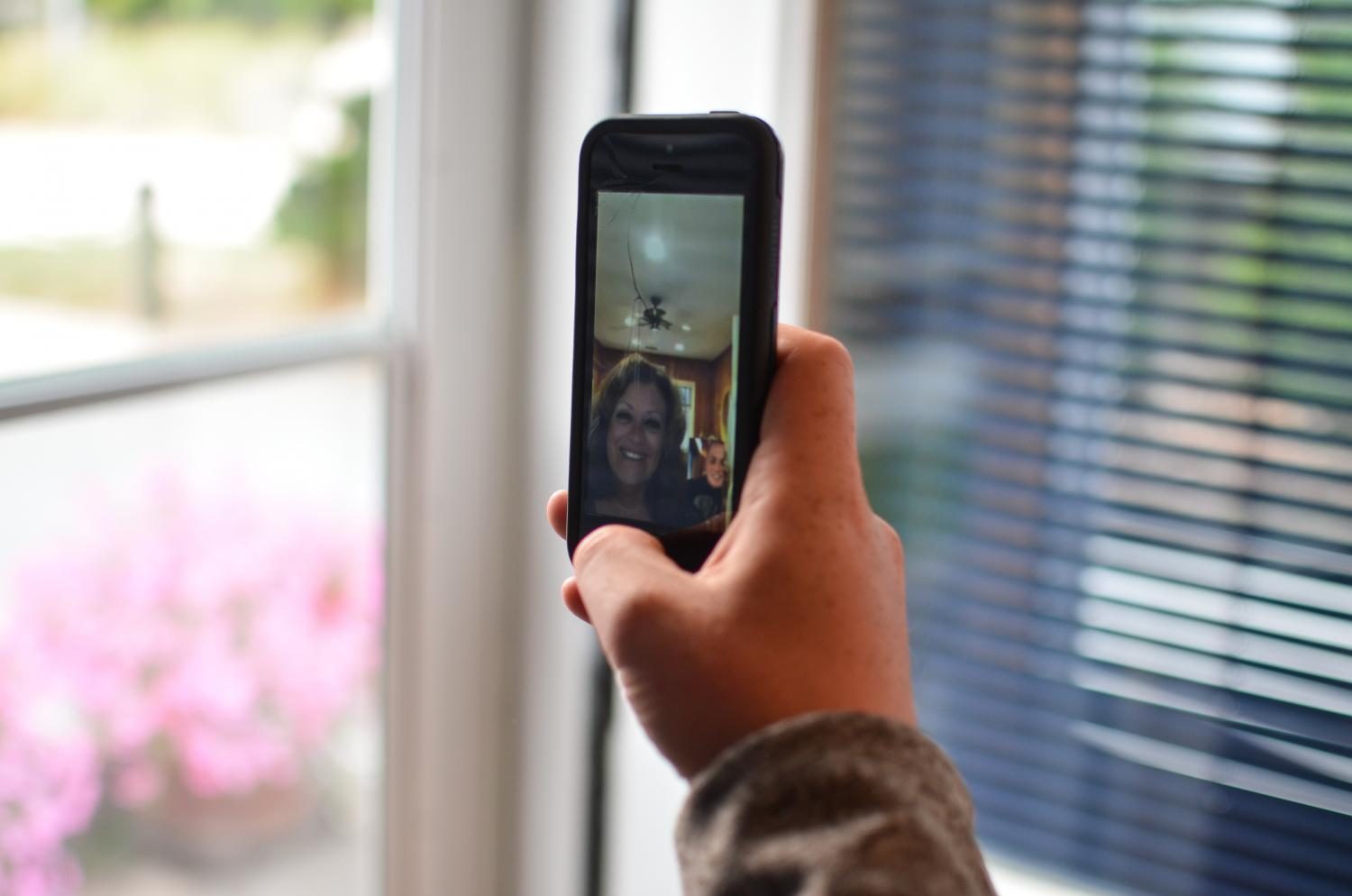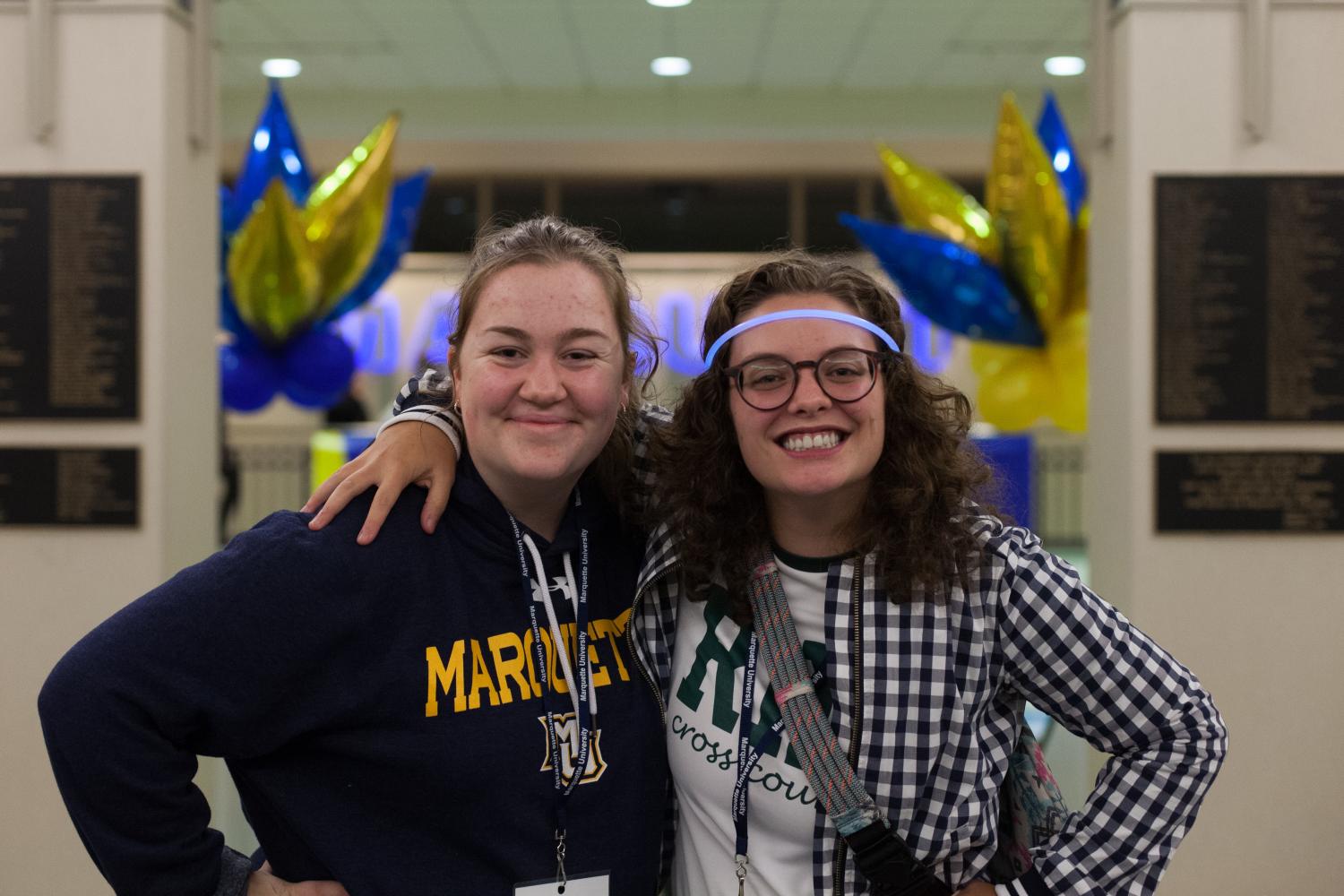Marquette middle blocker Jenna Rosenthal stands at the net, palms forward, fingers pointed toward the opposing side, pulsing with anticipation. She reads the opposing setter’s eyes and purposefully strides toward the right side of the net, arriving almost before the setter’s pass. The opposing hitter goes up for the spike, when all of a sudden…
Smack!
The ball glances off the outstretched hands of Rosenthal and back down onto the opposing side. Another terrific block, and another point for Marquette.
Plays like these may seem common for athletes like Rosenthal, who stands at 6-foot-6 inches tall. However, she said that she might not have made plays like that without one crucial thing: a redshirt year.
“During my redshirt year, I learned to read the game differently,” Rosenthal said.
A redshirt year occurs when a player sits out an entire year in exchange for a fifth year of athletic eligibility. The player may practice with the team and even dress for games, but is not allowed to play in matches.
Players are redshirted for a wide variety of reasons. For Rosenthal, she hadn’t started playing volleyball seriously until age 16 and had a litany of self-described “quirks” in her game.
Fellow redshirt freshman Taylor Louis, however, took a year off for an entirely different reason.
“I had been having knee problems all throughout preseason, and I wasn’t getting better fast enough,” Louis said. “I was honestly in favor of redshirting because I didn’t want to waste a year trying to recover.”
Marquette has two presumptive redshirts this year — outside hitter Amanda Green and defensive specialist Abby Julian — who will not see the court barring a rash of injuries to those ahead of them on the depth chart. However, Marquette head coach Ryan Theis said that this does not necessarily mean that there’s anything wrong with their techniques. According to Theis, lack of space in the lineup is also a significant factor.
“It’s just a matter of quality minutes,” Theis said. “If somebody’s going to play 40 percent of the time … and in their fifth year they’re going to play 100 percent of the time, then you have to ask yourself which one is going to be better for the program.”
One might think that ultra-competitive athletes who have honed their skills finely enough to earn a Division I scholarship would loathe the idea of having to take a year off from one of their life’s passions. However, both Rosenthal and Louis said that the values they gleaned from their redshirt season made taking a year off well worth it.
“I definitely improved my whole game,” Louis said. “Reading hitters, playing defense and (playing offense) were all very much improved during my redshirt year. I also had the time to strengthen my knees and my body, which helped me recover faster.”
Rosenthal concurred with her teammate.
“I understood that I was behind (in terms of development),” she said. “It was just sort of a struggle with myself to make sure I kept getting better.”
The Marquette women’s volleyball redshirt athletes find this experience especially valuable because Theis takes redshirted players on road trips to accustom them to the travel schedule and the noise of opposing gyms. Most other schools leave redshirted players at home because of travel expenses, but Theis believes that the experience gained is well worth the cost.
“They’re in it. They’re competing and wanting us to win even though they may not be on the floor,” Theis said. “They’re supporting their teams and seeing the environment, and that’s valuable.”
In the cases of Rosenthal and Louis, those types of experiences appear to be paying dividends this year. Louis is averaging 4.94 kills per set through 19 matches, which puts her at fifth in the country. Rosenthal has been a destructive force at the net, averaging 1.16 blocks per set, which ranks in the top 100 in the country.
Given how well redshirting appears to have worked for both Rosenthal and Louis, it should come as little surprise that they both recommend it to incoming freshmen.
“Even if they think that they are ready to take the court, they will know for certain … after a year of training and practicing,” Louis said.
Rosenthal said the entire experience was a trial run, and another year at the university is beneficial.
“After my redshirt year, Ryan told me ‘Alright, only 120 matches,’” she said. “I asked him what he meant and he said that there’s only about 120 matches in your entire career at Marquette. And I was like, ‘Wow, that’s a really finite number’ … The fact that you get to have an extra year to go and have these experiences is awesome.”

